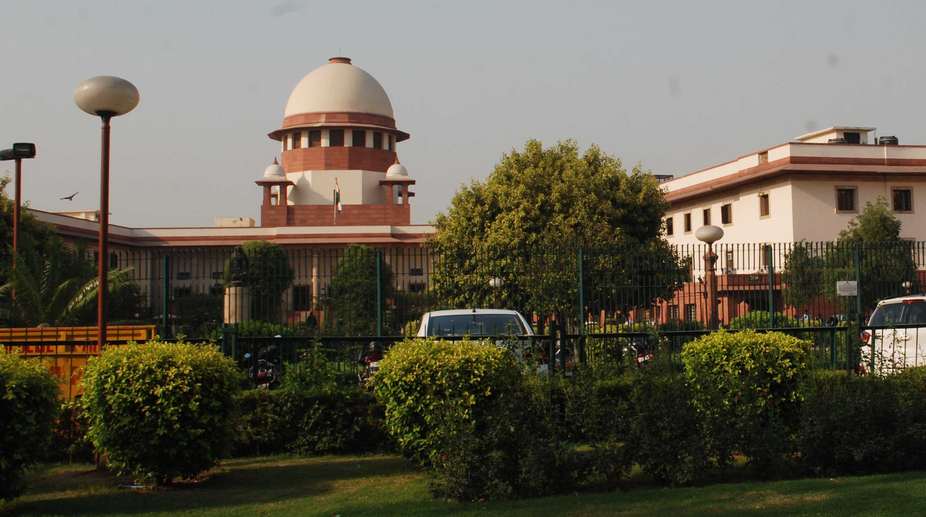The Supreme Court on Thursday reserved its order on the Central Bureau of Investigation (CBI) plea for revival of conspiracy charges against LK Advani and other leaders in the Babri Masjid demolition case.
A bench of Justices PC Ghose and RF Nariman heard arguments by both sides at length before reserving the order.
Advertisement
The apex court will also decide whether the trial of the VVIP accused can be transferred from a court in Rae Bareli to Lucknow. During the hearing, the bench indicated that it is open to the idea of putting Advani, Murli Manohar Joshi, Uma Bharti and others on trial.
There were two sets of cases relating to the demolition of the disputed structure on 6 December, 1992. The first involved unnamed 'karsevaks', the trial of which is taking place in a Lucknow court, while the second set of cases relates to the VVIPs in a Rae Bareli court. The bench also indicated that it may order holding of a joint trial of the two sets of cases by transferring the trial from Rae Bareli to a Lucknow court.
The bench said as 25 years have already passed, it will consider ordering a time-bound trial on day-to-day basis, to be completed preferably within two years. While senior advocate K K Venugopal, appearing for Advani and Joshi opposed the proposal for holding joint trial and transferring their case from Rae Bareli to Lucknow, the CBI clarified that it was not making any submission on the issue of the trial of the VVIP accused but was restricting itself to restoration of the charge of conspiracy against the accused.
Senior advocate Kapil Sibal, appearing for one of the intervenors, supported the proposal for a joint trial, contending the two sets of cases had arisen from one incident which allegedly involved single conspiracy. The apex court also gave opportunity to all the parties to file their written submissions by 11 April.
The apex court had earlier decided to examine the appeal against dropping of conspiracy charge against Advani, Joshi, Uma Bharti and 10 others.
The clubbing of two FIRs was opposed by the counsel for the accused on the ground that there were different sets of persons named as accused in the two cases, the trial of which were at an advanced stage at two different places. They were of the view that joint trial would lead to the beginning of de novo (afresh) proceedings.
The conspiracy charge against 13 accused, including Advani, Joshi and Bharti was dropped in the case, the trial of which is being held at a special court in Rae Bareli.
The appeals were filed by one Haji Mahboob Ahmad (since dead) and the CBI against dropping of conspiracy charges against 21 accused including BJP leaders Advani, Joshi. Eight of them later died.
A supplementary charge sheet was filed against eight persons but not the 13 who were discharged for plotting the demolition.
Besides BJP leaders Advani, Joshi and Bharti, conspiracy charges were dropped against Kalyan Singh (currently the Governor of Rajasthan), Shiv Sena supremo Bal Thackeray and VHP leader Acharya Giriraj Kishore (both have since died).
The others against whom the conspiracy charge was dropped include Vinay Katiyar, Vishnu Hari Dalmiya, Satish Pradhan, C R Bansal, Ashok Singhal (now deceased), Sadhvi Ritambhara, Mahant Avaidhynath (now deceased), R V Vedanti, Paramhans Ram Chandra Das (now deceased), Jagdish Muni Maharaj, B L Sharma, Nritya Gopal Das, Dharam Das, Satish Nagar and Moreshwar Save (now deceased).
The appeals have sought setting aside the Allahabad High Court's order of 20 May 2010, dropping Section 120B (criminal conspiracy) under the IPC while upholding a special court's decision.
The CBI had charge-sheeted Advani and 20 others under Sections 153A (promoting enmity between classes), 153B (imputations, assertions prejudicial to national integration) and 505 (false statements, rumours, etc., circulated with the intent to cause mutiny or disturb public peace) of the IPC.











